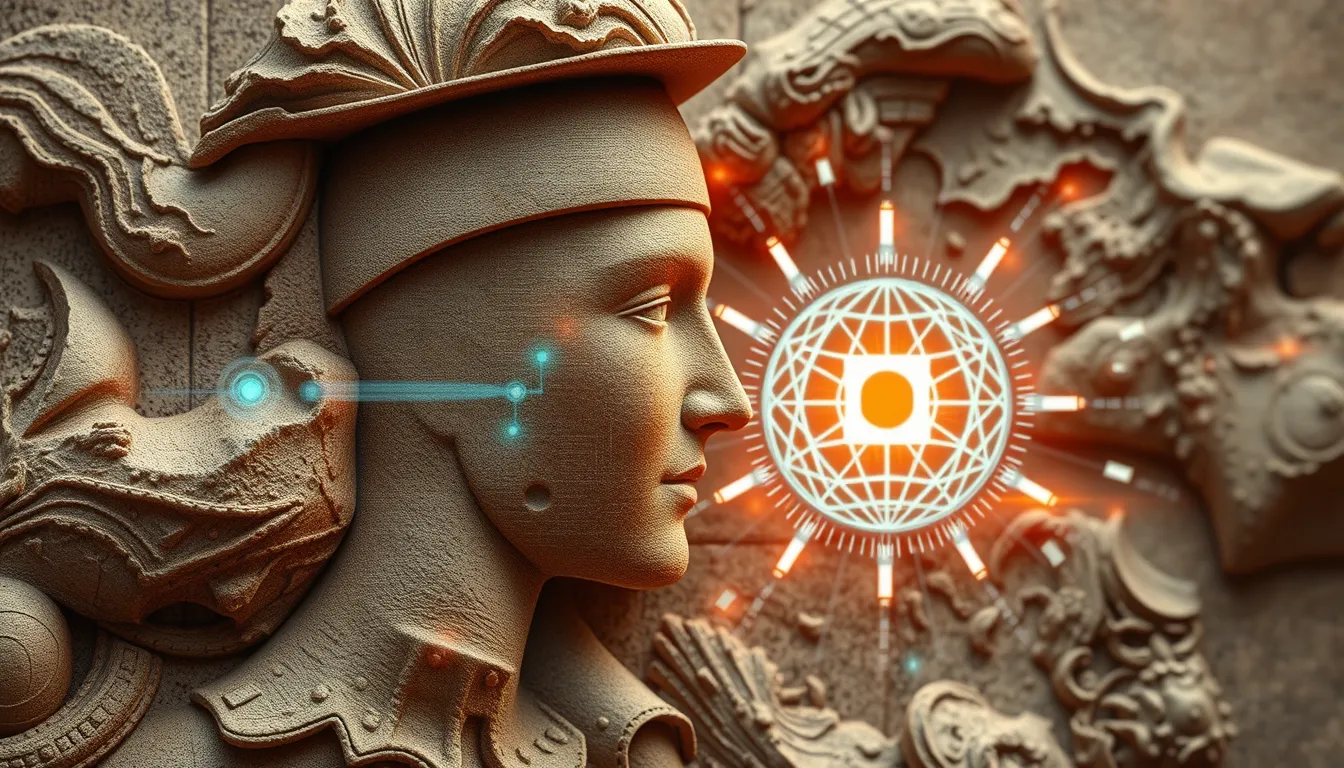Now Reading: Humanities in AI: Bridging Ethics and Innovation
-
01
Humanities in AI: Bridging Ethics and Innovation
Humanities in AI: Bridging Ethics and Innovation

Humanities in AI: Bridging Ethics and Innovation
In today’s rapidly evolving tech landscape, the integration of humanities and technology is more crucial than ever. The concept of humanities in AI is setting the stage for ethical development, ensuring that artificial intelligence systems are not only innovative but also respectful of human values and cultural nuances.
The Role of Humanities in Shaping AI
Historically, advancements in technology sometimes overlooked the social and cultural elements crucial to human progress. Now, with humanities in AI as a focal point, institutions like the Alan Turing Institute are advocating for a new paradigm. By merging ethical deliberation with scientific rigor, researchers are paving the way for AI systems that are deeply aware of human contexts. This interdisciplinary approach offers:
- A richer understanding of cultural and societal impacts.
- In-depth analysis of historical precedents related to technological shifts.
- A framework for integrating ethical design principles in AI systems.
Integration of Human Insights in AI Research
The integration of human insights in AI research is helping overcome the limitations of conventional, purely technical approaches. Humanities in AI encourages the incorporation of ideas from literature, history, philosophy, and the arts, which ensures that algorithms reflect societal values. In particular:
How Humanities Influence Artificial Intelligence
Experts have been discussing how humanities in AI can address critical challenges inherent to solely data-driven approaches. The infusion of humanistic inquiry offers a moral compass, which is essential for decisions regarding privacy, fairness, and accountability. Some notable benefits include:
- Mitigating algorithmic bias by considering diverse perspectives.
- Enhancing transparency in AI processes.
- Promoting accountability through ethical oversight.
Ethical Design Principles in AI Systems
A key part of ethical AI development is the application of ethical design principles in AI systems. These principles guide developers in creating models that are safe, responsible, and aligned with societal norms. For instance, a practical initiative involves:
- Cross-disciplinary collaborations where experts in ethics work alongside computer scientists.
- Development of guidelines that ensure algorithms respect human rights.
- Continuous evaluation of AI systems to identify and rectify moral oversights.
Interdisciplinary Approaches: Bridging STEM and Humanities
The convergence of STEM and humanities in AI research transforms how we approach technological innovation. The interdisciplinary approach facilitates:
- Broader viewpoints in solving complex problems.
- Innovative methods to predict and address future societal challenges.
- A reinforcement of the values that underpin responsible AI development.
Within this framework, humanities in AI is more than a buzzword—it is a critical strategy to harness the strengths of both technical prowess and human sensitivity. Collaborative projects, often spearheaded by leading institutions like the Alan Turing Institute, demonstrate a growing commitment to this balanced vision. Such initiatives include joint seminars, cross-departmental research teams, and educational programs that integrate socio-cultural studies with technological training.
Future Directions and the Importance of Education
The journey toward fully integrated humanities in AI is ongoing. Educational institutions are revamping curricula to include courses on ethics, historical perspectives, and cultural studies within the context of AI. This broad-based education is essential for developing a new generation of innovators who are not only skilled in technology but are also attuned to ethical and social responsibilities.
In practice, this means that future leaders in AI will be equipped to tackle challenges such as:
- The digital divide and potential social disparities.
- Unintended biases in machine learning models.
- The need for transparent and participatory design processes.
The Last Word on Humanities in AI
In conclusion, humanities in AI acts as a bridge that connects technological advances with human wisdom and ethical integrity. By embracing this integrated approach, we move toward a future in which AI systems operate efficiently while also embodying the values that make society just and compassionate. As the lines between STEM and humanities blur, the importance of humanistic insights in AI development will only grow stronger, ensuring that technology evolves hand in hand with ethical responsibility.
This thoughtful perspective highlights how interdisciplinary AI research can transform our society by promoting humane, accountable, and transparent technological progress. Embracing humanities in AI is not a mere trend but a fundamental shift toward inclusive innovation that prioritizes the societal impact of AI developments.
Ultimately, the merger of human insight with cutting-edge technology is essential for building a future where ethical, human-centered AI supports, protects, and enhances every aspect of our daily lives. With ongoing research, revised educational practices, and robust interdisciplinary collaboration, the promise of humanities in AI is set to lead us into a new era of balanced and responsible technological advancement.

























